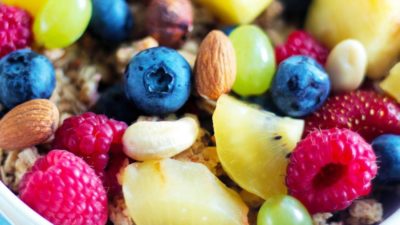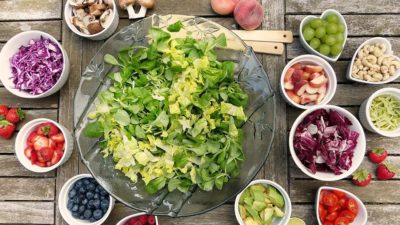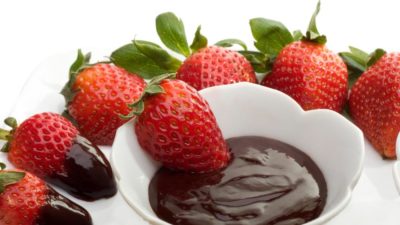The beginner’s guide to vegan nutrition
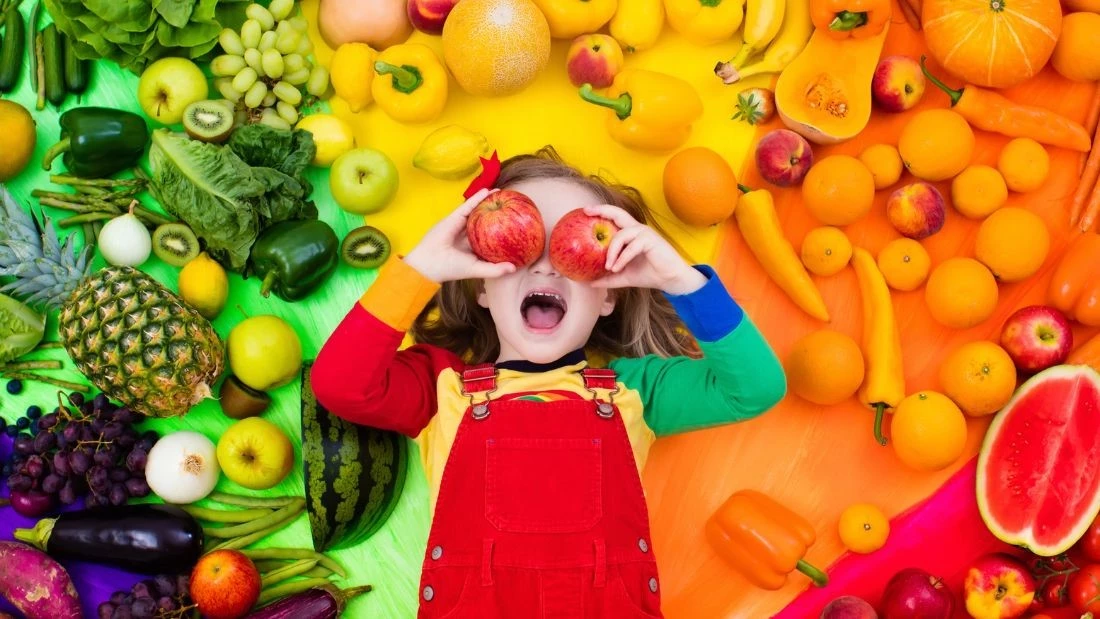
People choose to go vegan for many reasons – for the animals, the environment and their health. Going vegan not only means you will help to reduce animal suffering, protect wildlife and the environment but you can also improve your health and lower your risk of disease.
Studies show that vegans tend to be slimmer, have lower cholesterol and blood pressure and a lower risk of all the big killer diseases: obesity, diabetes, heart disease and cancer.
However, a vegan diet can still be unhealthy if it’s based on pies, biscuits and chips! If you follow some basic guidelines, with the occasional treat, you will soon reap the benefits.
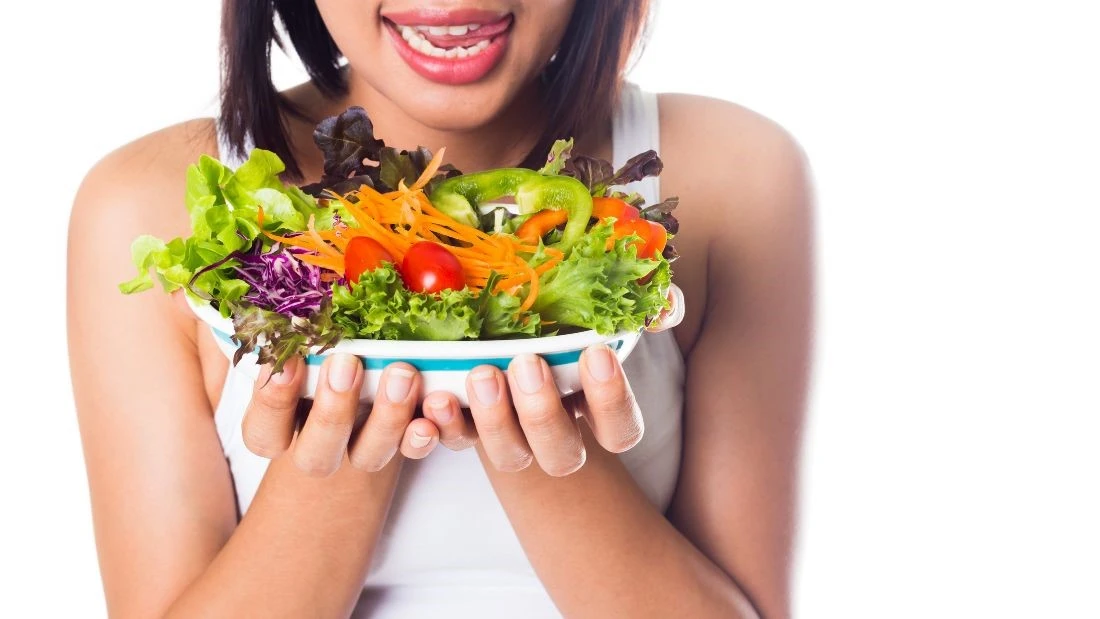
What is a healthy vegan diet?
A healthy vegan diet includes plenty of fruit and vegetables, wholegrain foods, pulses, nuts and seeds. We need to keep an eye on a few key nutrients, but this applies to everyone, regardless of diet. Sugary foods, white flour and processed foods should be limited to a minimum.
What I need each day for good health
| 5-8 portions of fruit and vegetables | fresh, frozen, steamed, cooked, blended in smoothies or dried. The natural chemicals that give foods their bright colours are also what protects your health. So, take a few minutes to add colour to every meal |
| 3-4 servings of cereals and grains | brown rice, wholemeal bread, wholewheat pasta, oats and quinoa |
| 2-3 servings of pulses | peas, beans, lentils, soya and products made from them |
| 2 tablespoons or a small handful of nuts and seeds | raw, lightly roasted, blended into butters or chopped in nut roasts |
| Small amounts of vegetable oil | flaxseed, hemp seed or virgin olive oil used cold; rapeseed or soya oil for cooking |
| A daily dose of vitamin B12 (and vitamin D if needed) | |
Nutrition essentials
Protein
One of the most common questions vegans are asked is “Where do you get your protein?”. Providing you eat a varied diet – containing enough calories – you will get plenty of protein. On average, adults need 45 to 55 grams a day. Most people in the UK get considerably more than that and too much protein, especially animal protein, can be harmful.
All plant-based foods contain some protein, unless they are extracts such as oil or sugar. Good sources include pulses, wholegrain foods, nuts and seeds.
Vitamin B12
Vitamin B12 helps maintain healthy nerve cells and plays a central role in the production of red blood cells and DNA. B12 is produced by bacteria that live in the soil. Traditionally animals would have got enough B12 by eating foods from the ground. The fact that so many farmed animals are now given B12 supplements means that most meat, eggs and dairy are no more ‘natural’ a source of B12 than the fortified foods or supplements vegans consume.
Do I need a supplement?
Yes! Ideally, a B12 supplement providing 50 micrograms daily or 2,000 micrograms a week. You can also top up your intake with B12-fortified foods (eg fortified plant milk, breakfast cereal and low-sodium yeast extract).
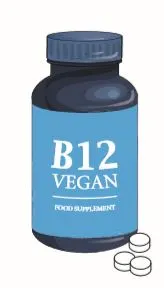
Vitamin D
We need vitamin D for healthy bones, teeth and muscles, as well as for many other essential functions. It’s produced in the body by the action of sunlight on the skin but can also be obtained from fortified foods (including plant-based milks, vegetable margarines, vegan breakfast cereals and ‘vitamin D mushrooms’ that have been exposed to UV light).
If you get enough sunshine during the summer, your vitamin D stores will likely be sufficient to see you through the winter. If you don’t get enough exposure to sunlight over the summer months, you may need to consider taking a supplement over the winter months (October to March) or throughout the year if you cover up or stay indoors most of the time.
Vitamin D2 is always vegan whereas D3 is usually of animal origin (derived from sheep’s wool) but can also be obtained from algae or mushrooms. If it just says ‘vitamin D’, on fortified products, it tends to be D3 of animal origin.
Do I need a supplement?
Maybe, if you don’t get enough during the summer. If so, 10 micrograms daily during winter (or all year round if you tend to cover up) is recommended. Vitamin D helps your body absorb calcium, but too much vitamin D may be harmful so make sure you don’t take more than 100 micrograms a day.
Calcium
We need calcium for healthy bones, muscle function, nerve transmission, signalling within cells and hormone formation. It is the building block for bones but can only build bones properly if you get enough vitamin D to help you absorb it.
Do I need a supplement?
Not if you eat a healthy, varied vegan diet, rich in wholegrain foods, leafy greens (eg kale and broccoli), pulses, nuts and seeds (tahini is a great source) and calcium-fortified plant milks. For most people, calcium supplements offer little if any health benefits and may be harmful.
Omega-3s
Omega-3s are a type of polyunsaturated fat that we need to stay healthy. They are an essential part of our cell membranes, a key component for several hormones and they help regulate inflammation. They may also reduce your cholesterol levels and help protect heart health. The main three types are called ALA, EPA and DHA.
- ALA is an essential fatty acid; our bodies can’t make it so we need to get it from food. Nuts, seeds and their oils (especially walnuts, chia seeds and flaxseed oil) are good sources.
- EPA and DHA are found in oily fish but can also be produced in the body from ALA. Fish don’t produce their own omega-3s, they get them from the algae they eat. If you want to take a supplement, you can take a sustainable, vegan one produced from algae.
Do I need a supplement?
No, one or two teaspoons of flaxseed oil, or a handful of walnuts and a tablespoon of ground flaxseed, can provide all you need but if you want to take a supplement supplying EPA and DHA look for a vegan one.
Iodine, selenium and zinc
We need iodine for normal thyroid function and to help regulate how energy is produced and used in our bodies. The seaweeds arame, wakame and nori are all good sources (kelp provides excessively high levels which can be harmful, so best to avoid). Adults need 140 micrograms of iodine a day and most people should be able to achieve this by eating a varied vegan diet, with some occasional seaweed and/or iodised salt – used sparingly.
Selenium is a key part of our cell defence mechanism and acts as an antioxidant – protecting cell membranes and DNA from damage. Women need 60 micrograms and men 75 micrograms a day. The best plant sources include Brazil nuts, sunflower and sesame seeds, wholegrains, tofu, asparagus and mushrooms.
Zinc is important for making new cells and enzymes that enable vital reactions in the body. We also need it for wound healing, a healthy immune system and it’s crucial for male reproductive health. The amount of zinc you need is about 9.5 milligrams a day for men and seven milligrams a day for women. The best plant sources include tempeh (fermented soya beans), wholewheat pasta, tofu, quinoa, pumpkin seeds, lentils, wholewheat couscous, brown rice, cashew nuts, sesame seeds and tahini (sesame seed paste).
Do I need a supplement?
No, a healthy, varied vegan diet, containing the foods listed above, should cover your needs.
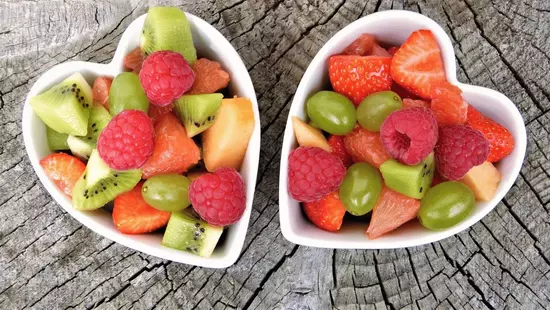
Variety is the key to a healthy, well-balanced vegan diet. All plant foods contain a mixture of nutrients in different quantities – protein, carbohydrates (including fibre), fat, vitamins and minerals – but to get the maximum benefit, it’s best to aim for a varied, colourful diet; eat the rainbow! It will provide you with all the nutrients you need and boost your health.
To find out more about a healthy vegan diet see here.




